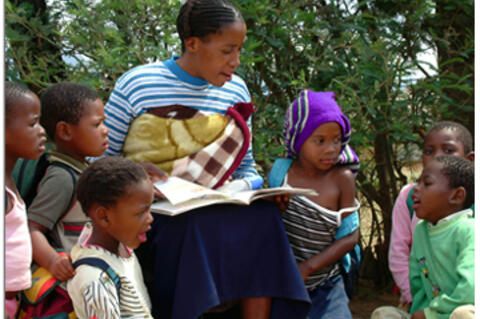Societies Tackling AIDS through Rights (STAR)

According to organisers, the STAR methodology evolved from two participatory approaches, Stepping Stones and REFLECT (Regenerated Freirean Literacy through Empowering Community Techniques). Stepping Stones (SS) is a participatory learning package that focuses on relationships and communication skills with the aim of reducing HIV transmission, improving SRH, and fostering gender empowerment. REFLECT is a structured participatory learning process that facilitates people's critical analysis of their environment, as well as the identification and discussion of problems, resulting in practical solutions relevant to the local context.
The STAR approach seeks to address misinformation or lack of information on HIV/AIDS issues and fragmented responses. It is also designed to address issues of gender equity and to break barriers to communication by enhancing the capacity of individuals to open up and talk about sensitive issues. The process includes identifying specific actions, for example, demanding appropriate information and services from service providers. Some of the actions are intended to be challenges to the participants themselves, especially around customs and stigma which are considered to fuel the epidemic.
The approach is also designed to strengthen the literacy and communication of vulnerable people, especially women and girls, giving them skills to negotiate, open up dialogue within the household and community, and participate in making decisions. It also intends to help increase the capacity of the economically poor and people living with HIV to advocate for their priorities, particularly around HIV/AIDS, for example, demanding increased access to testing and affordable treatment.
In order to facilitate this process, the project includes the training of community facilitators and community-based organisations, especially women's groups, in policy advocacy and rights-based approaches to communication and mobilisation. Methods such as dramas, role plays, and community dialogues are joined with systematic and continuous data collection, analysis, learning, documentation, publications, and sharing to wider actors who intend to scale up the approach. Part of the strategy is to facilitate linkage between STAR programmes and other community-based organisations to create mass mobilisation to interact with local government and institutions.
The organisers outline the basic principles of STAR as follows:
- HIV and AIDS are mainstreamed;
- activities are conducted in peer working groups;
- participatory tools and techniques are used to enhance learning;
- group discussions are underpinned by power analysis;
- STAR programmes have built-in literacy and communication skills;
- participation is key, and everyone is visible and has a chance to be heard;
- each discussion hinges on actions/issues generated by the community;
- participants set up benchmarks for tracking progress and impact being made; and
- there is a strong element of documentation and information management.
HIV/AIDS, Gender, Reproductive Health
Pamoja Africa REFLECT Network is an African-wide non-profit, participatory education and development initiative established in 2002 by African REFLECT practitioners to facilitate learning, sharing, and continuing evolution of REFLECT practices in Africa. It forms part of CIRAC (Circle for International REFLECT Action and Communication), which is a global organisation of REFLECT practitioners, set up in 2000. CIRAC won the United Nations Educational, Scientific and Cultural Organization (UNESCO) literacy award for 2003.
Pamoja Africa REFLECT Network, ActionAid International (AAI).
Pamoja website on June 19 2008 and November 24 2009.
- Log in to post comments
